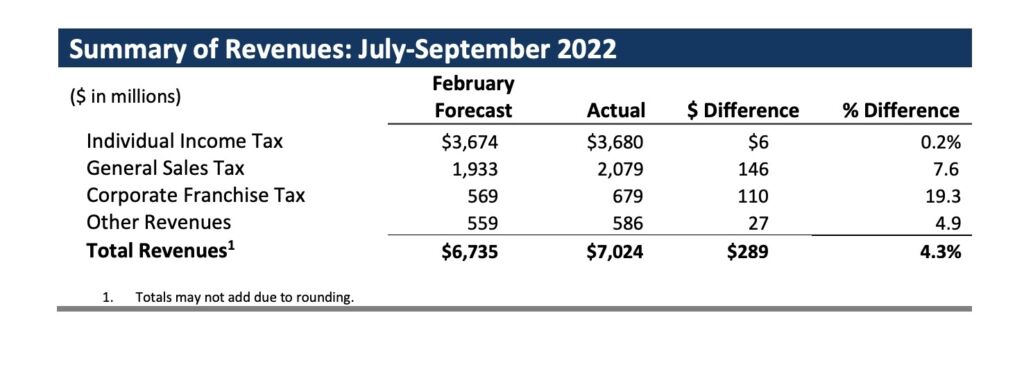What would a recession mean for our state budget?
According to the Minnesota Management and Budget (MMB),
Minnesota’s net general fund receipts for the first quarter of FY 2023 are now estimated to total $7.024 billion, $289 million (4.3 percent) more than forecast in the February 2022 Budget and Economic Forecast. Net receipts exceeded the projection for all major tax types.

Tax collections for the 2022 Fiscal year — July 2021 to June 2022 — are $2.918 billion, or 10 percent, higher than was forecast earlier this year in February.
With three months into the 2023 fiscal year, it is hard to estimate how the rest of the 9 months will pan out. With job growth moderating, and the Federal Reserve pushing hard to hike interest rates, threats of a looming recession in the near term have only grown. In fact, the IHS Markit, which undertakes the state’s modeling, has revised down national GDP numbers beginning in the last quarter of this year.
So, in case there is a recession, what would that mean for the state government’s coffers?
How recessions affect state budgets
Unlike the federal government, state governments government must always run a balanced budget. States can’t operate on deficits, but must always find a way to make up for their revenue shortfalls.
Recessions generally present a strain on state budgets since they are associated with decreased tax revenues. As people lose jobs, spending decreases, thereby tax collections go down.
Admittedly things were different in the 2020 COVID-19 recession. Instead of going down, tax revenues came in better than was forecast in Minnesota — and in a lot of other states in the country. This was due to two main reasons that were specific to the pandemic.
For one, Minnesota relies heavily on individual income tax. And the high-income workers — who make up the majority of income tax collections — were unaffected by the COVID-19-induced recession. Additionally, the federal government sent money to state governments and individuals which propped up the economy thereby maintaining tax revenues.
Both of those factors aren’t in play currently. There is no virus or government rules affecting only specific industries — like the shutdowns and lockdowns. So, any upcoming recession would likely be more broad-based, affecting the whole economy.
In case of a recession
We cannot say yet how much tax revenues will be affected.
But what we do know is that tax revenues in Minnesota have exceeded the forecast every month since the historic February forecast. Additionally, our rainy day fund has $2.7 billion, and we have over a billion dollars in unspent federal COVID-19 money. Suffice it to say, our state government has a lot of money to cushion the fall — if there is any.
But we should also keep in mind that Minnesota is a high-tax, high-spending state, as American Experiment keeps pointing out. We are spending more now in inflation and population-adjusted terms than at any other point in history, and our taxes are some of the highest in the country.
A recession should be the wake-up call our legislators need to finally cut unnecessary spending and keep our budget in check.